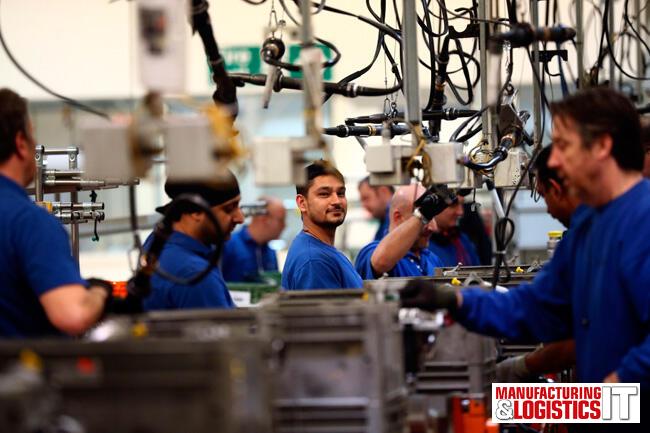Growth and investment are at risk because manufacturers remain disengaged from the banking sector with the legacy of the financial crisis still playing a significant role in their attitudes towards external finance, warns a new report:
- Reluctant to borrow: 85% of manufacturers are confident of securing finance, but only a third (35%) are more likely to use finance than they were two years ago
- As they shun banks, 55% of firms are holding more cash on their balance sheets compared to pre-recession levels
- Solid pre-Brexit vote investment intentions, but still over half of firms (53%) would postpone or cancel investment if they couldn't fund it themselves
- Manufacturers' unwillingness to leverage their business with bank debt is likely to deepen post-referendum
- Competition and Markets Authority must provide 'swift and firm remedies that pack enough punch to stop the rot' says EEF.
Nearly a decade on from the start of the credit crunch and the relationship between manufacturers and the banking sector is still yet to recover, according to a new report out today from EEF, the manufacturers' organisation.

The concern today is that manufacturers are shunning the banks in favour of self-financing investment projects, potentially leading to lower levels of manufacturing investment overall. The report warns that this presents a risk to growth that will likely be sharpened as the UK heads towards Brexit and says that the Competition and Markets Authority's final recommendations on the competition failures affecting retail banking services for SMEs, due out tomorrow, must 'pack enough punch to stop the rot'.
According to the report, over eight in ten (85%) manufacturers are confident of securing finance for a new business opportunity. But, while just over a third (35%) say they are more likely to use external finance than they were two years ago, 65% disagree. At the same time, there has been a spike in cash holding, with 55% saying they are now holding more cash on their balance sheets compared to pre-recession levels.
The data shows that prior to the Brexit vote, manufacturers' investment intentions were solid, but still over half of firms (53%) would postpone or cancel investment if they couldn't fund it themselves. This suggests that attitudes towards bank lending have remained largely unchanged even though economic conditions had improved considerably and interest rates have been stuck at historic lows.
Manufacturers' unwillingness to leverage their business with bank debt or rely on products such as overdrafts for working capital is likely to deepen post-referendum. Uncertainty over economic conditions will only add to the caution.
At the same time, concerns about the banking sector's liquidity and the decline in bank stock prices could bring competition shortfalls back to the fore. Supply-side issues, such as the absence of product diversity, minimal differences in price, little transparency and poor banking relationships have been deterring factors even for those manufacturers with an appetite for bank finance. This lack of a diversified base for finance could lead to tighter credit conditions which will be detrimental for the real economy.
Another major concern, however, is that manufacturers' increased propensity to hold cash on their balance sheet leaves them particularly vulnerable in the event of negative interest rates, as some banks have already flagged the prospect of charging customers for having credit balances.
Against this backdrop, the report says that the CMA's final recommendations, due on the 9th August, are critical. Manufacturers are still more likely to use 'traditional' products with medium-term debt (64%), asset finance (56%) and overdrafts (50%) the most common types of finance they would consider.
Lower costs (59%) and the ability to demonstrate manufacturing-specific expertise (53%) would encourage them to consider increasing their use of external finance. At the same time, six in ten (60%) would consider switching banks if the process was easier. This means swift implementation of additional measures to boost competition in the banking market will be key.
Ms Lee Hopley, Chief Economist at EEF, the manufacturers' organisation, says: "Manufacturers' reluctance to rely on external finance is a persistent hangover from the credit crunch, where trust and confidence in the banks stalled and never quite recovered. But with the Brexit vote dampening investment intentions and adding to uncertainty, this pre-existing condition could now become further aggravated, posing a risk for growth.
"This makes the CMA's package of reforms even more important. The CMA cannot prevent a fall in investment intentions, but it can help to strengthen supply dynamics in the market and resolve some of these long-term issues by providing swift and firm remedies that pack enough punch to stop the rot. Whether the next recession is in one year or 20 years' time, the problems in this vital market must be fixed. Manufacturers must have access to finance - progress needs to be seen."

Add a Comment
No messages on this article yet